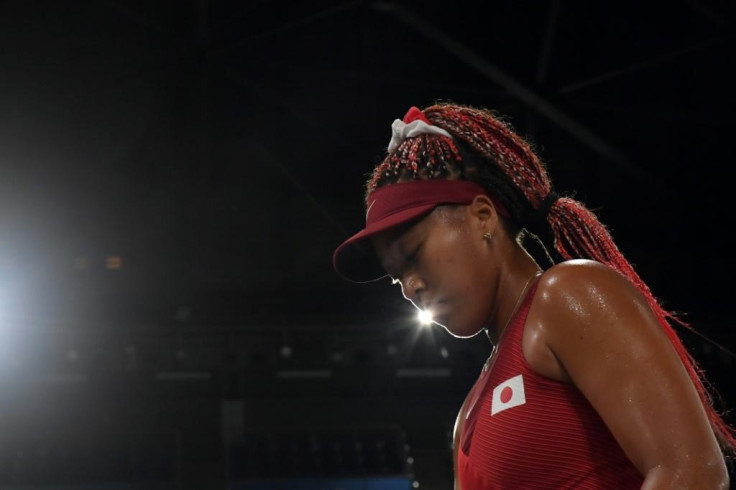French Open uses AI to protect players from online abuse
The age of social media has made athletes and other public figures more vulnerable to online abuse, causing mental health challenges.

It is no secret that social media is a double edged sword. While public figures such as athletes, showbiz personalities, and even ordinary people can use the platforms to reach a wider audience, it also opens users up to possible abuse from people who can hide behind the anonymity provided by their keyboard.
Tennis players are not immune to said abuse. Their fans are happy to be able to catch regular and more intimate updates about both their professional and personal lives. However, detractors also have access to the same posts, and more often then not, the comments section can become a very toxic place when it comes to the accounts of these athletes.
Win or lose, there will be trolls in the comments. Some players are more conservative in their social media activities, but regardless if they are more open or not, someone out there in the world can always find something nasty to say.
In 2021 the mental strain on tennis players was brought to the spotlight by Naomi Osaka, who pulled out of several tournaments, including the French Open, after suffering from mental health issues like anxiety and depression. She did not single out social media, but she spoke about the pressure she has been under as a professional athlete.
Other tennis players have opened up about receiving death threats and other forms of abuse online. Some say that even their families are not safe from nasty comments and malicious messages sent by the general public.
With this in mind, organisers of the ongoing French Open at Roland Garros have decided to make use of the wildly popular albeit controversial Artificial Intelligence technology to help protect players.
Exactly how can AI help protect players from abuse?
According to a report by the BBC, the French Open has introduced an AI bot called "The Bodyguard," which will "filter out abusive comments on Facebook, Instagram, Twitter, Youtube, Tiktok and Discord."
The system has been made available to participants at the tournament though a QR code that they can scan. Once registered, the AI will be integrated into their social media accounts where it should be able to filter comments in real time. The abusive remarks will be blocked within 200 milliseconds, which should be able to stop the players from seeing any potentially damaging comments and messages.
"The Bodyguard" has been trained to filter out certain word patterns which have been identified by a team of linguists. It is also able to adjust and be updated in real time as it continues to learn from the incoming comments and messages.
While it aims to protect the athletes from abuse, the AI's creators are also aiming not to resort to too much censorship.
The French Tennis Federation is aiming to prioritise the mental health of the tournament's participants, and the French Open is a pioneer in using this kind of technology. It remains to be seen how effective it will be and if the other Grand Slams will soon follow suit.
World number one leads the way
Defending champion Iga Swiatek has admitted that she has signed up for the programme. She shared that she used to have a habit of checking the comments online to see the public's opinion after her matches. Now, she has steered clear of that habit.
"I had, I don't know, two tournaments, one I won, the other one I was in the final. I went on social media and people were unhappy because after last year, they thought that I should win everything [or] that I'm getting worse because I'm not winning," she said. The Polish star said that the comments left her frustrated and she realised that she should stop reading the negative comments.
She also said that it made her sad to see the negative effects of social media when the apps should have been there to make people happy and closer to each other. American star Coco Gauff, who lost to Swiatek in last year's final, also praised the French Open for the initiative.
"Before I implemented that [a filter], yes, I would get them [negative comments] on Instagram pretty much daily, hourly. I just filter everything - the messages I can only see are people who have followed me for some time," she shared.
Abuse is not isolated to tennis
Unfortunately, online abuse is something that is being experienced by athletes from other sports as well. Not only athletes, politicians, singers, actors, influencers, and even ordinary people can receive hate messages.
Some schools are also dealing with online bullying issues. Apart from facing the problem online, the issue also exists in real life. Just last week, Brazilian footballer Vinicius Junior had to play in a stadium in Spain where almost the entire crowd was taunting him with monkey chants. The incident took place in a La Liga match between Real Madrid and Valencia.
In England, racial abuse was hurled at players like Marcus Rashford, Jadon Sancho and Bukayo Saka after Euro 2020 when they lost to Italy. They also have to deal with the same on nearly a weekly basis in the Premier League.
© Copyright IBTimes 2025. All rights reserved.






















